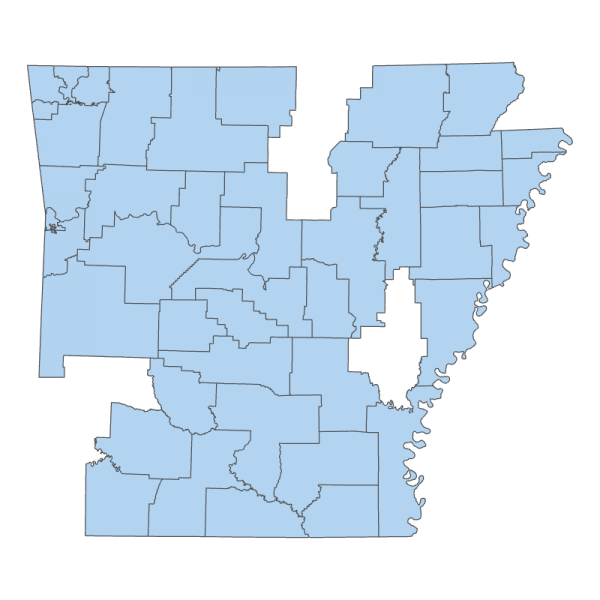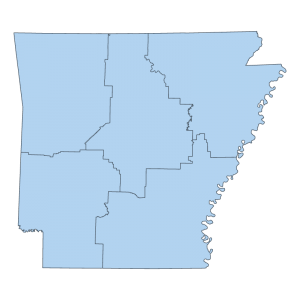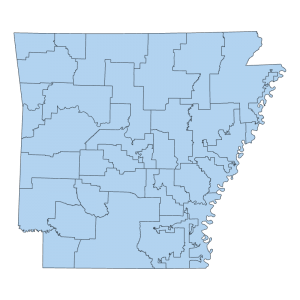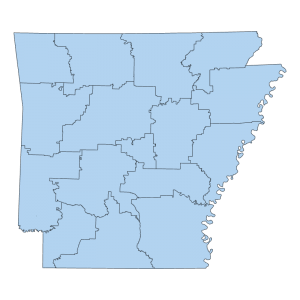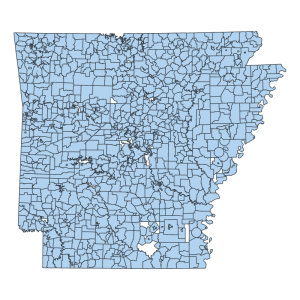Data Description
SPECIAL NOTE: Users are advised the implementation of State District Courts spans numerous years. Users are advised to determine the appropriate time period or vintage for their purpose. The district boundaries portrayed in this collection were current as of the 92nd General Assembly of 2019 and may be subject to change in future legislative sessions.The GIS data in this file shows the District Court boundaries, identifies the district court numbers, the written number, the sub-division if applicable, the date the district court becomes effective, the year effective and a reference to the state statute which contains the written description of the district territory.
The District Court Resource Assessment Board, created in § 16-17-1001 et seq., studied the effectiveness of the state’s creation of pilot district courts and found that they were successful in creating a more uniform and equitable judicial system, reducing the number of district and city court judges, maintaining the level of service to the communities served by district and city courts, allowing the shift of cases from circuit to district courts, decreasing the number of conflicts requiring the appointment of special judges, and improving public access to the court system. The Board recommended the state should continue the incremental creation of state district courts served by full-time judges and designate geographic districts that have sufficient caseloads to justify a full-time judge until the system is implemented and operating statewide. The Arkansas General Assembly continued the implementation of District Courts and in 2019 passed laws that established the districts themselves and the time period for implementation of the District Courts.

